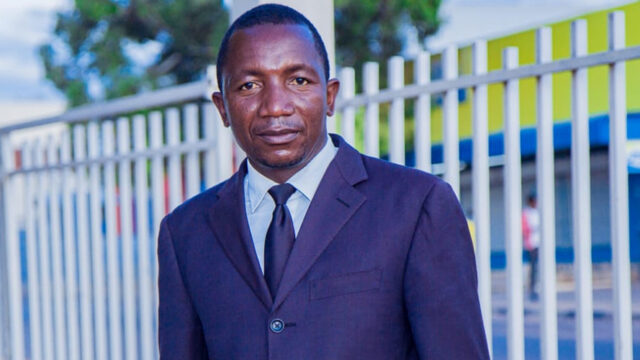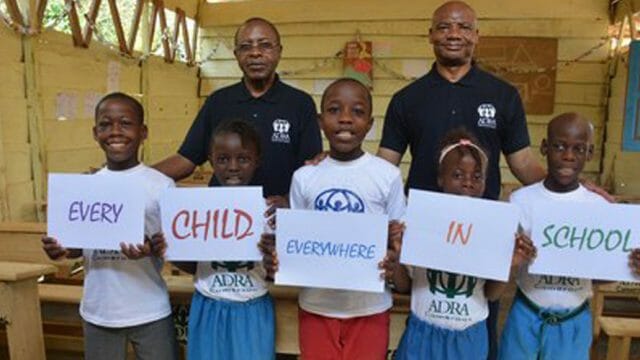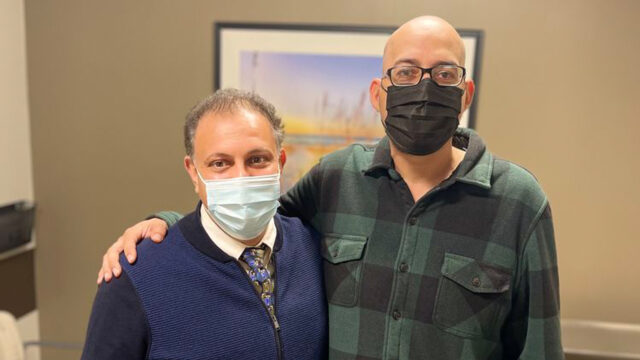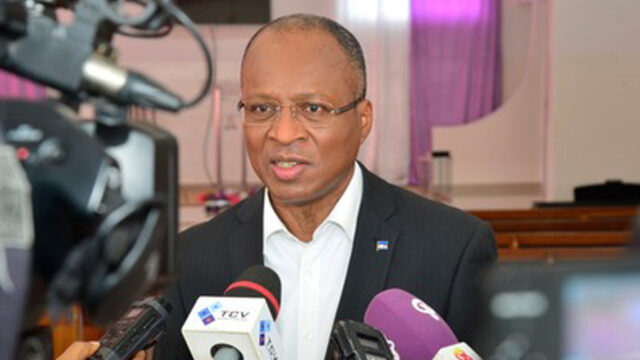In Honduras, the agency is helping hundreds trekking north in the direst of conditions.
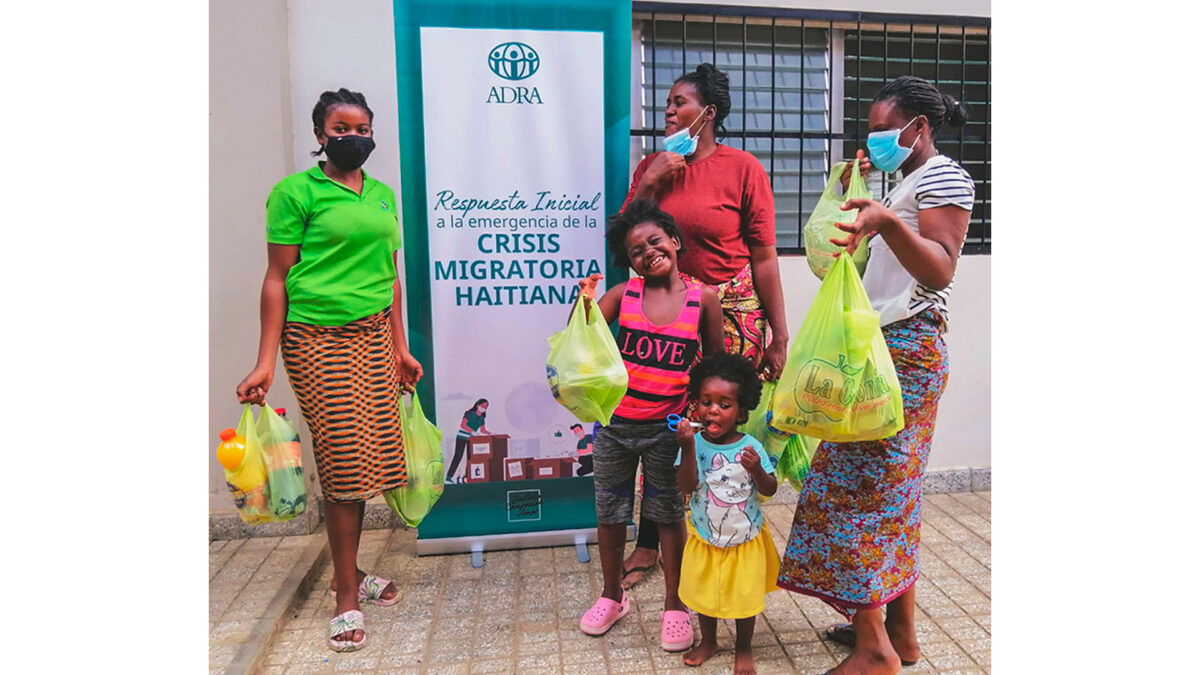
For nearly six months, the Adventist Development and Relief Agency (ADRA) in Honduras has been assisting more than 750 migrant families who day by day make the long trek from South America, through Honduras, in their quest north.
The assistance, which started as an effort to help Haitian migrant families, saw ADRA leaders and volunteers moving quickly to provide food and basic needs. More than 3,000 Haitians passed through the cities bordering Honduras and Nicaragua in 2021.
“We are seeing an average of 200-300 Haitian migrants each week, but it can fluctuate, with some weeks increasing significantly,” ADRA Honduras director Luis Trundle said.
Receiving Assistance
The project was originally slated to provide a hygiene kit to each Haitian family selected, but it was modified to instead offer vouchers or cards so that families could obtain what they most needed in local grocery stores, Trundle explained. Although the assistance is mainly for Haitian migrant families, the project has expanded to assist migrant families from other nationalities as well.
It is estimated that some 1,000 to 1,500 migrants from Venezuela, Cuba, Senegal, Angola, the Democratic Republic of the Congo, and other countries have recently come into Honduras, Trundle said.
With a voucher worth US$23.00, a migrant family of four is able to buy canned foods, bread, crackers, peanut butter, personal hygiene products, medicines, and anything they choose to help them on their journey.
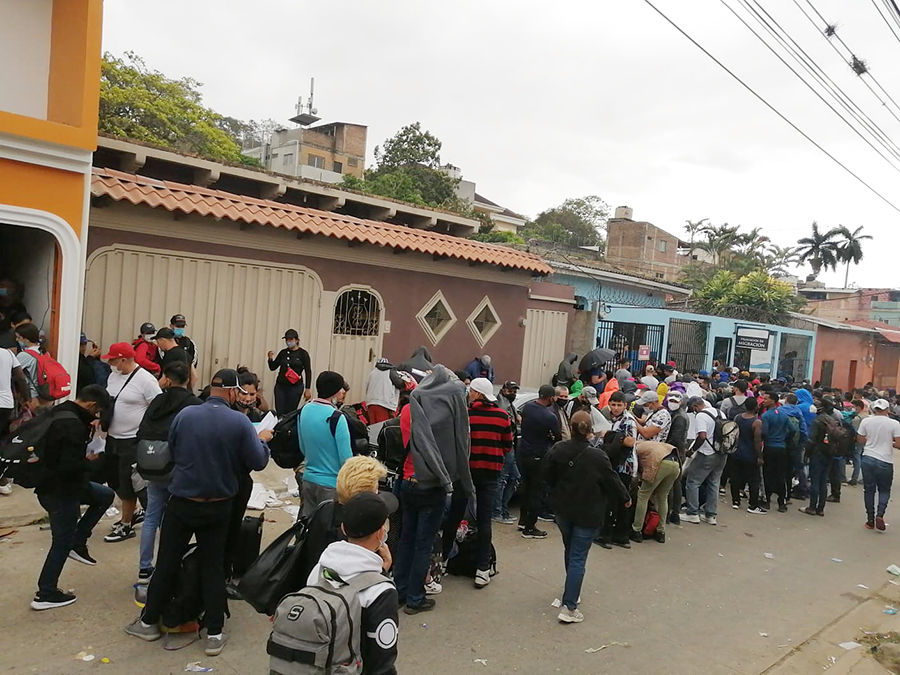
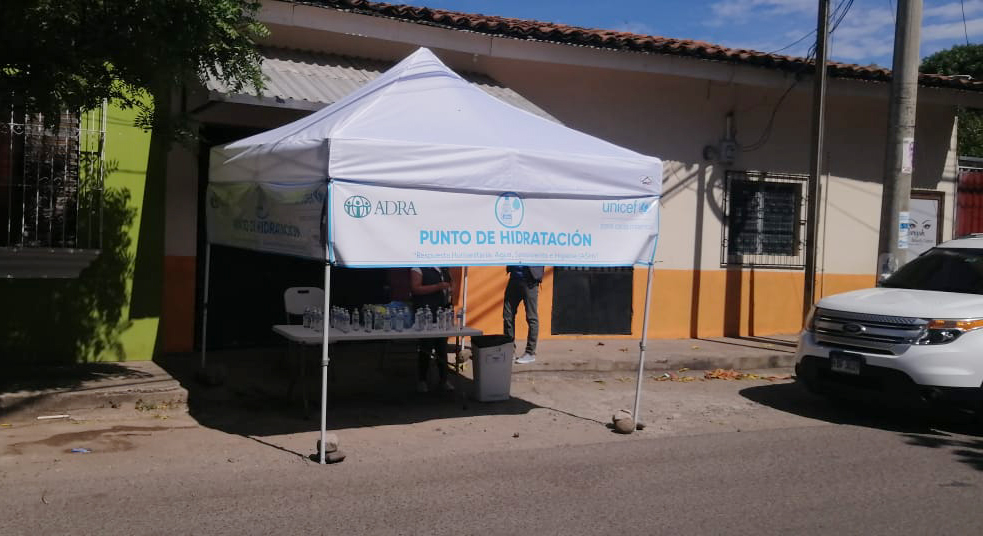
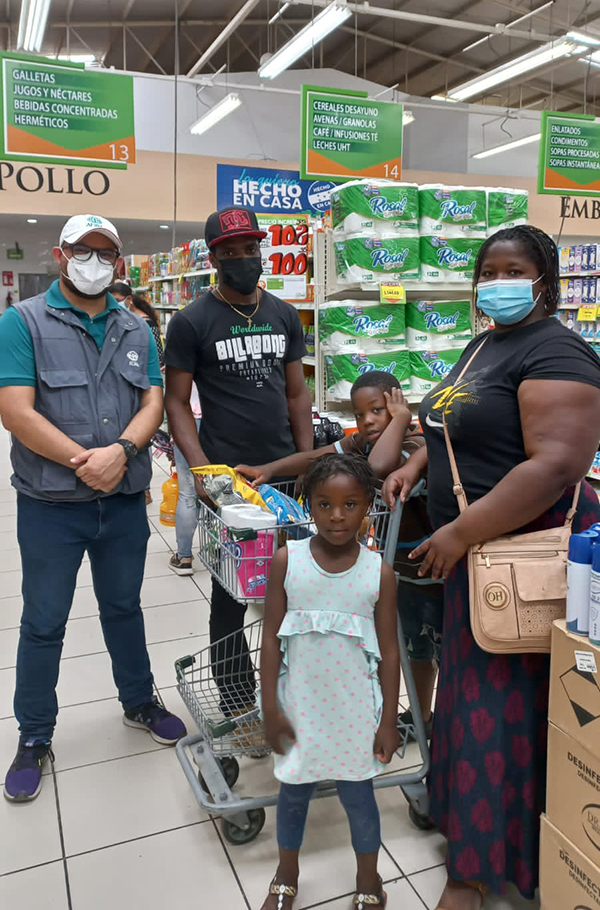
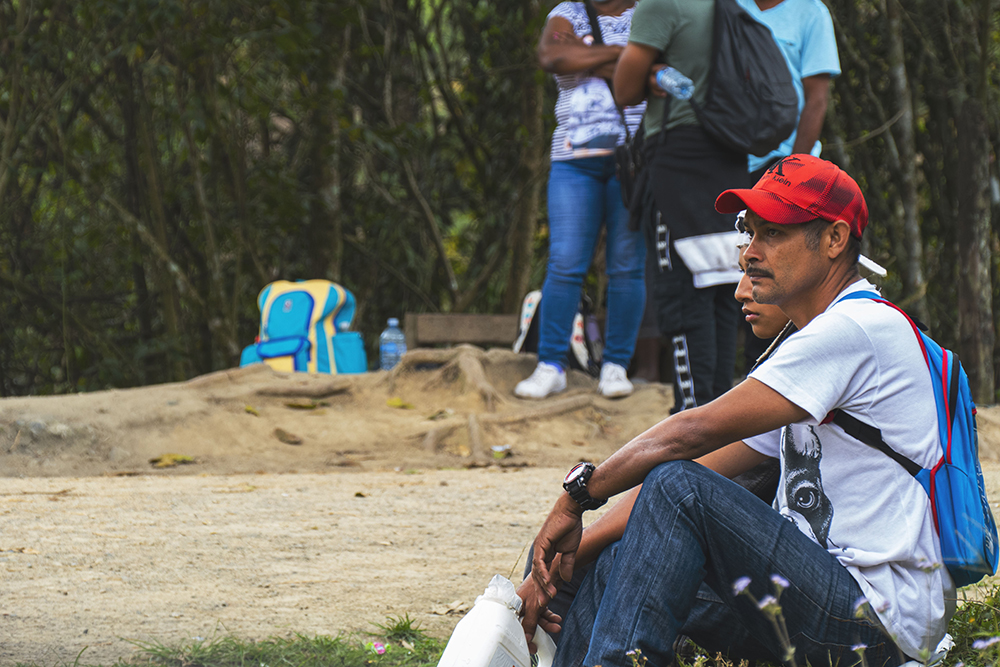
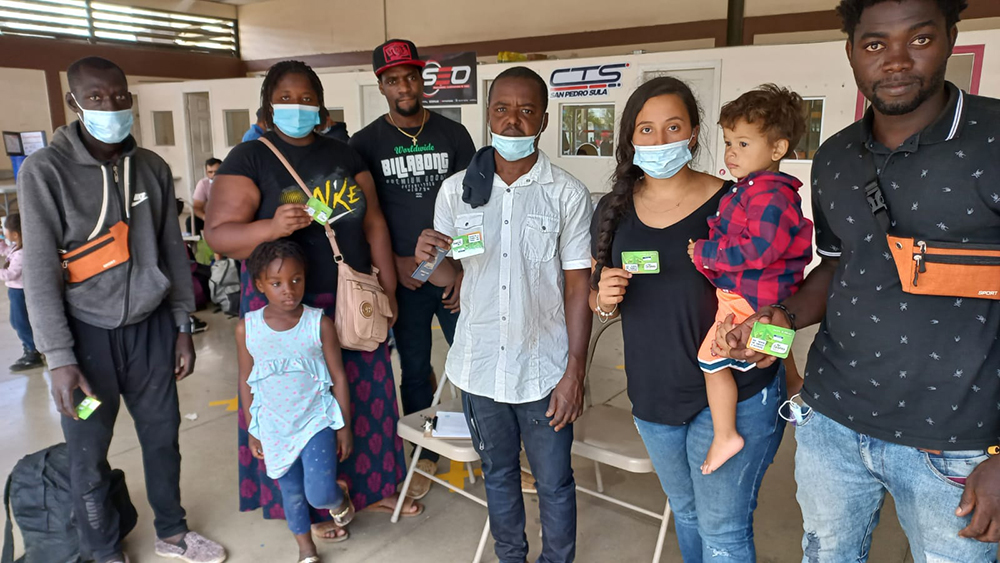
ADRA Honduras has set up assistance with volunteers, translators, and coordinators in Choluteca and El Paraiso, which are bordering cities close to Nicaragua, where migrants can register.
ADRA Honduras emergency response officer Jesús Manueles has been overseeing the response and ensuring that migrant families are able to get what they need when they arrive. “When each person comes to these specific shelters, they make an appointment to register and the next day, they are assisted by volunteers who help them purchase goods with their vouchers,” Manueles said. On the third day they can continue their journey.
Making the Arduous Journey
“We see how the families come to us dehydrated and exhausted,” Manueles said. “Many of them arrive with just their clothes on their backs, carrying their children, hurting, stressed, and hungry from not eating anything for three days.”
Migrants report they are robbed four or five times throughout their journey in the jungles of Central America. “They are stripped [of] any personal belongings like watches, cell phones, money, and basically everything,” Manueles said. Women and underage girls report they are sometimes assaulted and raped, and most arrive with lacerations on their arms and legs, with fungus on their feet, and many other infections, he explained.
“It’s just heartbreaking,” said Rony Tabora, an ADRA Honduras program officer who assesses the needs of the migrant families and designs assistance projects. “I’ve heard many stories of how they travel for 12 days through the jungle, a trip that usually takes six days. But guides work with armed groups to tire the migrants until they have no food left, are exhausted and disoriented, and then they are robbed and abandoned,” Tabora said. Many are disoriented but somehow find their way to the next border, he added.
There are many sad stories, Tabora said. Providing the assistance that ADRA is offering to so many that are left with nothing is making a difference, he added.
Caring During the Migrant Crisis
ADRA Honduras has been very involved in caring for the migrants for several years now, alongside other non-governmental organizations, Trundle said. In addition to the current voucher program, ADRA has been running hydration stations for thousands of migrants heading north in coordination with UNICEF and other non-governmental agencies in Choluteca and El Paraiso cities.
Right now, the ADRA project to assist migrant families is nearly ending, Trundle said. The project has been budgeted to benefit 950 migrant families thanks to assistance from ADRA International and ADRA Inter-America. Leaders at ADRA Honduras are hoping to extend the project for two additional months. Plans are also underway to provide personal kits in coordination with UNICEF.
“We are bringing hope to many migrant families,” Trundle said. “Our country is their halfway point of travel and for us it feels wonderful to be part of this project,” he added.
“We want these migrant families to find comfort and basic needs here in Honduras, like a small oasis, so they can continue their journey with a little bit more hope,” he said.
The original version of this story was posted on the Inter-American Division news site.



